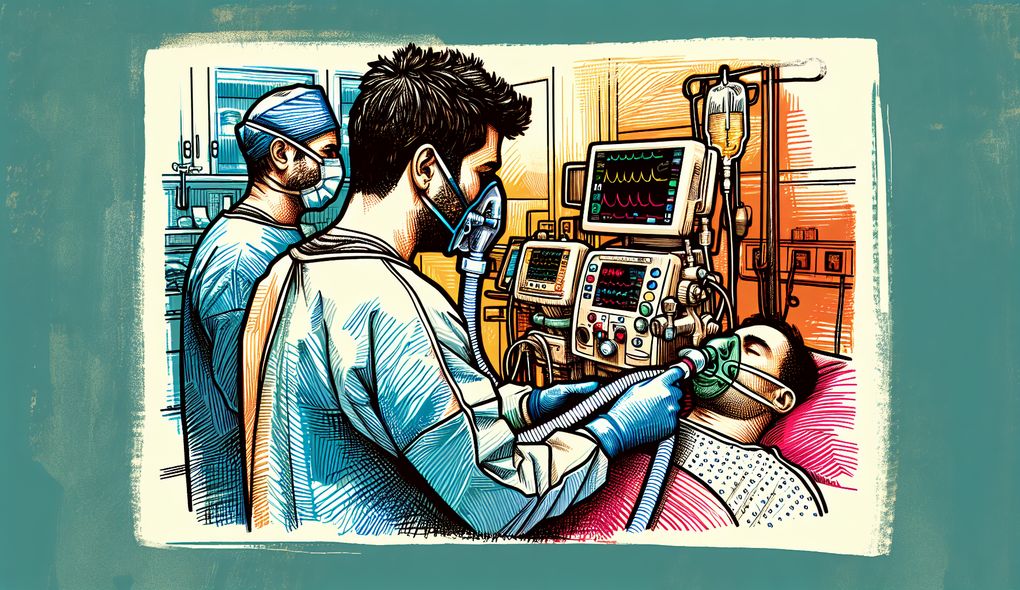Tell us about a time when you successfully resolved a patient's respiratory issues.
JUNIOR LEVEL

Sample answer to the question:
I had a patient who came into the hospital with severe respiratory distress. They were struggling to breathe and required immediate intervention. I quickly assessed the situation and gathered all the necessary equipment to provide respiratory support. I administered oxygen therapy and monitored the patient's oxygen saturation levels closely. I also conducted a thorough assessment of their lung function using spirometry. Based on the results, I adjusted the oxygen flow rate and provided bronchodilator medication to improve their breathing. I closely monitored the patient's response to treatment and made necessary adjustments to ensure their comfort and stability. By the end of my shift, the patient's respiratory distress had significantly improved, and they were able to breathe more easily. It was rewarding to see the positive impact of my intervention on the patient's well-being.
Here is a more solid answer:
One memorable experience I had as a respiratory therapist was when I successfully resolved a patient's respiratory issues in the emergency department. The patient presented with severe shortness of breath and had difficulty maintaining adequate oxygen saturation levels. I promptly initiated oxygen therapy through a nasal cannula and closely monitored the patient's respiratory status using continuous pulse oximetry. Recognizing the need for further intervention, I collaborated with the healthcare team to obtain a physician order for a nebulized bronchodilator medication. I carefully administered the medication and closely assessed the patient's response, ensuring there were no adverse reactions. In addition, I provided reassurance and emotional support to the patient, explaining the actions taken and addressing any concerns they had. Through close monitoring and effective communication with the team, the patient's respiratory distress significantly improved, and their oxygen saturation levels stabilized within a safe range. This experience highlighted my strong understanding of respiratory care procedures and protocols, as well as my ability to work effectively in a team and communicate with healthcare professionals.
Why is this a more solid answer?
The solid answer expands on the basic answer by providing specific details about the respiratory care procedures and protocols followed, as well as how the candidate effectively worked in a team and communicated with healthcare professionals. It also highlights the candidate's analytical and problem-solving abilities by mentioning the collaboration with the healthcare team and the assessment of the patient's response to treatment. However, there is still room for improvement in terms of providing more specific examples of the candidate's problem-solving abilities.
An example of a exceptional answer:
In a critical care setting, I encountered a patient with acute respiratory distress syndrome (ARDS) who required immediate care and intervention. Their oxygen saturation had significantly dropped, and they were struggling to breathe despite receiving oxygen therapy. I quickly recognized the need for advanced respiratory support and collaborated with the team to initiate mechanical ventilation using a positive pressure ventilator. I carefully adjusted the ventilator settings based on the patient's lung protective ventilation strategy, ensuring optimal oxygenation and ventilation. Additionally, I closely monitored the patient's hemodynamic parameters, arterial blood gases, and ventilator waveforms to assess their response to treatment and make appropriate adjustments. To address the underlying cause of ARDS, I collaborated with the physician to implement a proactive pharmacological approach, including administering diuretics and antibiotics. I also provided thorough education to the patient's family, explaining the criticality of the patient's condition and the ongoing interventions. Thanks to the multidisciplinary teamwork and my ability to effectively communicate and coordinate respiratory care, the patient gradually showed improvements in their oxygenation and lung compliance. By the time the patient was ready for weaning from the ventilator, their respiratory distress had significantly resolved. This experience demonstrated my strong understanding of respiratory care procedures and protocols, excellent patient care and clinical skills, ability to work effectively in a team, and detail-oriented analytical and problem-solving abilities.
Why is this an exceptional answer?
The exceptional answer goes into more detail about the specific respiratory care procedures and protocols followed, showcasing the candidate's strong understanding. It also highlights the candidate's excellent patient care and clinical skills through the proactive approach taken to address the underlying cause of the patient's respiratory distress. The answer demonstrates the candidate's ability to work effectively in a team and communicate with healthcare professionals through the collaboration with physicians and thorough education provided to the patient's family. Additionally, it emphasizes the candidate's detail-oriented analytical and problem-solving abilities by mentioning the careful adjustment of ventilator settings and monitoring of hemodynamic parameters, arterial blood gases, and ventilator waveforms. This answer fully aligns with the job description as it encompasses all the required skills and qualifications for the role of a respiratory therapist.
How to prepare for this question:
- Review and familiarize yourself with common respiratory care procedures and protocols, including oxygen therapy, bronchodilator administration, and mechanical ventilation.
- Practice your communication skills, especially in relaying information to healthcare professionals and educating patients and their families.
- Develop your problem-solving abilities by challenging yourself to think critically in clinical scenarios and considering different approaches to care.
- Stay updated on the latest advancements and guidelines in respiratory therapy, such as those from the American Association of Respiratory Care (AARC) and National Board for Respiratory Care (NBRC).
What are interviewers evaluating with this question?
- Strong understanding of respiratory care procedures and protocols
- Excellent patient care and clinical skills
- Ability to work effectively in a team and communicate with healthcare professionals
- Detail-oriented with strong analytical and problem-solving abilities

